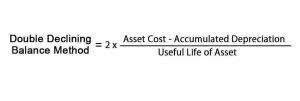
As mentioned, you must keep all trust account records for at least six years after the end of the representation. This is a long time, but it’s non-negotiable – even if you close your practice or a client file, those ledger books, bank statements, and reconciliations must be stored (in a safe, accessible manner) for the https://www.bookstime.com/articles/how-much-does-bookkeeping-cost 6-year period. Many firms scan everything and keep electronic backups, which is fine as long as you could produce printed copies if required. The rule even states that electronic records should be backed up by an appropriate storage device.
Services
If you’re already using QuickBooks for your firm’s finances, consider adding a legal-specific overlay like LeanLaw to manage your trust account within QuickBooks. The consequences of trust account mismanagement in Pennsylvania can be career-ending. Sanctions for trust accounting violations range from reprimands and fines to license suspension or disbarment in egregious cases (especially if client money is misused). The Disciplinary Board and courts view mishandling client funds as a strict liability issue – even unintentional mistakes can result in discipline.
- Every Pennsylvania lawyer holding client funds must maintain at least one trust account in an approved bank, in addition to the operating account for firm funds.
- The IOLTA interest generated benefits the wider community by supporting legal aid, making IOLTA accounts a key part of responsible legal practice.
- Always use the dedicated trust account for client funds until those funds are earned by you or payable to someone.
- When this is done, a firm must decide how those dollars are going to be safeguarded without depositing them into any of the already existing lawyers trust accounts that aren’t specifically earmarked as an IOLTA account.
- By doing this, law firms contribute to the greater good while fulfilling their obligations to their clients.
Who must have these accounts?
The goal is to make trust accounting efficient and foolproof, so that it doesn’t consume your time or cause anxiety each month. Instead of dreading trust compliance, you can set up systems that practically run in the background – with you just overseeing and approving as needed. The Bar also offers an Ethics Hotline where you can call with trust accounting questions – they won’t audit you over assets = liabilities + equity the phone, but they will guide you on how to handle a tricky situation ethically. Additionally, each Florida Bar branch office has a branch auditor (who is a CPA) available to answer general trust accounting questions from lawyers.

The Benefits of IOLTA Accounts for Lawyers and Clients
For lawyers, these accounts ensure compliance with ethical rules regarding the safekeeping of client funds while also reducing the administrative burden of managing multiple individual accounts. Law firms need to follow specific rules on how client funds are handled, and maintaining an IOLTA account ensures compliance with ethical and legal obligations. If you simply don’t have time to learn the rules and handle these accounts, consider hiring an online bookkeeping service. Bookkeepers have equipped themselves with a deep understanding of the rules and carefulness in keeping records that can help you avoid potential problems, financial losses, and disciplinary action in the future. In that way, you iolta stands for don’t need to worry about managing your client’s accounts or committing mistakes. Trying to ‘withdraw’ or ‘borrow’ money from an IOLTA account before it is earned is considered an intentional act.

Trust accounting is an essential – if often intimidating – part of running a law firm. This is especially true in Iowa, where attorneys are held to strict standards for handling client funds. Iowa’s Interest on Lawyers’ Trust Accounts (IOLTA) program and trust accounting rules are designed to protect clients and support public interest causes. Failure to comply isn’t just an abstract risk; it can result in audits, disciplinary action, or even loss of your law license. In fact, violations of safekeeping property rules (trust account rules) are among the top causes of attorney discipline nationwide, and Iowa consistently ranks high in disciplinary rates.


